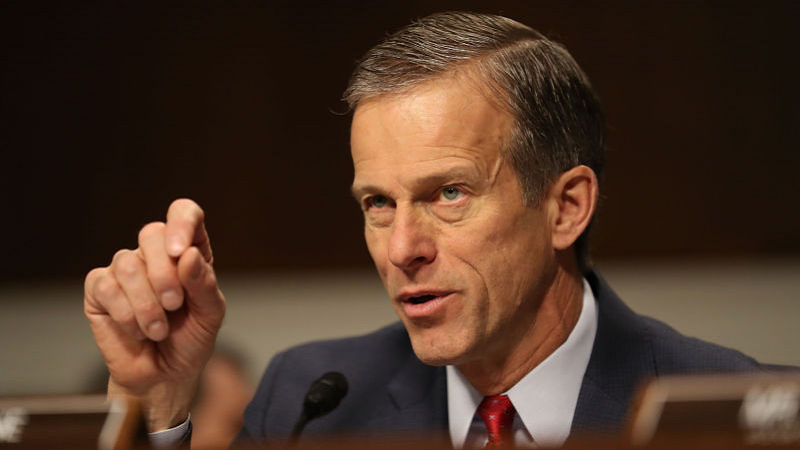
As the Federal Communications Commission (FCC) began July 23 auctioning mid-band spectrum crucial to 5G deployment, senators on Capitol Hill questioned whether the decades-old spectrum management process is working properly, and asked witnesses if changes need to be made.
Sen. John Thune, R-S.D., chairman of the Senate Communications, Technology, Innovation, and the Internet Subcommittee, asked witnesses whether they believe that the “interagency spectrum process as designed by Congress is working?”
“It may be suffering from growing pains,” said Mark Gibson, director of business development and spectrum sharing policy at wireless equipment maker CommScope. “I don’t think we feel that the process is broken.”

Gibson said Sen. Thune’s question was similar to that of House Energy and Commerce Committee Chairman Frank Pallone Jr., D-N.J., when he asked the Government Accountability Office (GAO) to investigate similar questions earlier in the year. GAO has accepted the committee’s request, but has not yet begun work, a GAO spokesperson said in an email to MeriTalk.
Central to the Federal-level spectrum management process is a 2003 Memorandum of Understanding (MOU) between the National Telecommunications and Information Administration (NTIA) and the FCC.
“The FCC and NTIA are required to work together to ensure that spectrum policy decisions promote efficient use of the spectrum consistent with both the economic interests and national security of the nation,” the document states. The MOU is “intended to formalize this cooperative relationship,” with NTIA managing Federal spectrum and the FCC overseeing non-Federal and commercial spectrum use.
But as the demand for wireless spectrum has increased as 5G networks are being deployed, there has been a strain on the NTIA’s partnership with the FCC.
“In the case of a dispute between NTIA and FCC, a theoretical dispute, who reigns?” Sen. Jerry Moran, R-Kan., asked on Thursday. “Is there a third party that then steps in?”
NTIA took the rare step of filing a petition protesting an FCC decision earlier this year. The sparring has forced Congress to action. The Senate held a hearing on an FCC spectrum decision and both chambers have put forth legislation to update NTIA’s spectrum management IT systems.
Both Gibson and Michael Calabrese, the director of the Wireless Future Project at the Open Technology Institute at New America, cited the work of NTIA’s Commerce Spectrum Management Advisory Committee (CSMAC), on which Calabrese has served since 2009.
“There is general agreement among [CSMAC] members that the United States’ current approach for managing the use of spectrum is no longer effectively serving the needs of the entire stakeholder community and would benefit from reform,” said the CSMAC working group in a January report, quoted by both Gibson and Calabrese.
“We wonder whether the process might lend itself to revisiting that [MOU] in the context of more shared spectrum use,” Gibson said. Calabrese also pointed to revisiting the MOU as an option for reform in his prepared remarks, adding that a more detailed report on the reform alternatives will be discussed at the July 30 CSMAC public meeting.
“What’s needed is greater collaboration between NTIA and FCC at all levels,” said Tom Power, senior vice president and general counsel at the trade group CTIA, “to have a shared vision of what we are really trying to achieve between the FCC and NTIA.”
President Trump required a National Spectrum Strategy in an Oct. 25, 2018 memorandum. The strategy, due over a year ago, has not been shared publicly. The White House press office did not respond to request for comment.
“We have to figure this out,” said Sen. Thune, of spectrum management, at the conclusion of the hearing. “The stakes are so high, and our competitors are not having to delay, and sit around dealing with the bureaucratic, it seems like obstacles, that it we’re having to deal with here.”
